2 EIGHTH MEETING OF MINISTERS OF JUSTICE OR OEASERKXXXIV8
10 T HIRTYEIGHTH REGULAR SESSION OEASERP JUNE0 BELARUS UNITED NATIONS GENERAL ASSEMBLY 71ST SESSION EIGHTH
1040 EIGHTH AVENUE 2ND FLOOR BEAVER FALLS PA 15010
2 EIGHTH MEETING OF MINISTERS OF JUSTICE OR OEASERKXXXIV8
3 EIGHTH SUMMIT OF THE AMERICAS OEASERE APRIL 13
AD HOC COMMITTEE ON THE DISABILITY CONVENTION EIGHTH SESSION
:: Secretariat for Legal Affairs (SLA) > Organization of American States ::
EIGHTH MEETING OF MINISTERS OF JUSTICE OR OEA/Ser.K/XXXIV.8
OTHER MINISTERS OR ATTORNEYS GENERAL REMJA-VIII/doc.4/10 rev. 1
OF THE AMERICAS 26 February 2010
Original: Portuguese
REMJA VIII
CONCLUSIONS AND RECOMMENDATIONS OF REMJA-VIII*
CONCLUSIONS AND RECOMMENDATIONS OF REMJA-VIII
The Eighth Meeting of Ministers of Justice or Other Ministers or Attorneys General of the Americas (REMJA-VIII) took place in Brasilia, Brazil, on February 24, 25, and 26, 2010, as called for in the “Document of Washington” (REMJA-VII/doc.6/08 rev. 1) and in resolutions AG/RES. 2369 (XXXVIII-O/08) and AG/RES. 2462 (XXXIX-0/09) of the OAS General Assembly.
REMJA-VIII takes note of the important and useful part played by implementation of the “Document of Washington,” approved by REMJA-VII to govern the REMJA process, both in compliance with the recommendations made at that meeting and in the preparation and execution of this meeting. In this regard, REMJA-VIII highlights the significance of the fact that as provided in the “Document of Washington,” both Ministers of Justice and Attorneys General of the member states of the OAS with responsibilities in the area of international legal cooperation, in particular criminal matters, attended this meeting. This participation consolidates REMJA as the hemispheric forum for cooperation in this area, and constitutes significant progress toward interagency and international coordination and the definition and adoption of concrete and practical polices, such as those embodied in these conclusions and recommendations, to strengthen the states’ effective, efficient, and expeditious joint action to prevent, prosecute, and combat crime in the Americas.
Having concluded its deliberations on the various items on its agenda, REMJA-VIII adopted the following conclusions and recommendations for transmission to the OAS General Assembly at its fortieth regular session:
CONCRETE MEASURES TO STRENGTHEN LEGAL AND JUDICIAL COOPERATION IN THE AMERICAS:
REMJA-VIII reaffirms that the damage caused, and the threat posed to our citizens, our democracies, and the economic and social development of our states, by the different manifestations of crime in the Hemisphere, make it necessary and urgent to continue to strengthen and enhance mutual legal and judicial cooperation at the hemispheric level, as well as to ensure that member states have the laws, procedures, and legal mechanisms in place to enable them to prevent transnational organized crime, prosecute and punish the perpetrators of this type of crime and to deny them safe haven as well as the proceeds and instrumentalities of their illegal conduct.
REMJA-VIII notes the enhancement of legal and judicial cooperation in criminal matters resulting from various processes launched in the REMJA framework. Among them are those related to support for justice reform, such as the establishment of the Justice Studies Center of the Americas (JSCA); the development of mechanisms for hands-on cooperation, through meetings, networks, and other means of sharing information, experiences, training, and technical cooperation among national officials competent in such areas as mutual assistance in criminal matters and extradition, cyber-crime, trafficking in persons, penitentiary and prison policies, and forensic research; the initiative to draw up and adopt a hemispheric plan of action against transnational organized crime; and the forging of many other agreements called for in the recommendations of the REMJA and its working groups and technical meetings, as well as the procedures established to follow up on their implementation; and the reinforcement of cooperation with other regional, subregional, and international organizations and bodies in the various areas addressed by the REMJA and its working groups and technical meetings.
The measures taken in compliance with REMJA recommendations have been practical and very useful for ensuring effective, efficient, and expeditious international legal cooperation, mainly in criminal matters. Notwithstanding the progress achieved in this regard, it is essential to continue moving forward and to further strengthen the states’ joint efforts, through concrete new measures and actions such as those emanating from the working groups and technical meetings held since REMJA-VII, from which REMJA-VIII has received reports and on which it has made specific recommendations, as expressed in the sections below.
However, REMJA-VIII deems it important to make the following recommendations on measures or actions to strengthen legal and judicial cooperation in the Americas:
That the OAS member states that have not yet done so sign and ratify, ratify, or accede to, as appropriate, as quickly as possible:
The Inter-American Convention against Corruption, and the Declaration on the Mechanism for Follow-up for its implementation (MESICIC) (“Document of Buenos Aires”);
The Inter-American Convention on Mutual Assistance in Criminal Matters, and its Optional Protocol;
The Inter-American Convention against Terrorism;
The Inter-American Convention against the Illicit Manufacturing of and Trafficking in Firearms, Ammunition, Explosives, and Other Related Materials (CIFTA);
The Inter-American Convention on Serving Criminal Sentences Abroad;
The United Nations Convention against Illicit Traffic in Narcotic Drugs and Psychotropic Substances;
The United Nations Convention against Transnational Organized Crime, and its protocols; and
The United Nations Convention against Corruption.
That the OAS member states that have not yet done so adopt the legislation and other measures required to facilitate and ensure implementation of the aforementioned conventions and to provide effective, efficient, and expeditious cooperation in the framework of those conventions, inter alia, in mutual assistance, extradition, and the confiscation and/or seizure of assets.
That the OAS member states, as necessary, and in full observance of the principles of their legal systems, review domestic laws and enforcement mechanisms with a view towards modernizing the tools to address the challenges of transnational organized crime, including implementation of laws and other measures:
To ensure that those engaged in transnational organized crime be prosecuted by member states whose laws they violate;
To combat international trafficking in illegal narcotics, as well as precursor chemicals used to make synthetic drugs;
To strengthen and apply import and export control laws in order to prevent the illicit trafficking of firearms, ammunition and explosives;
To strengthen legal systems and international cooperation to prevent drug trafficking;
To facilitate, when their legal systems allow, and with full respect of civil rights and due process and in accordance with applicable national legislation, the interception of wire, oral, and electronic communications and the sharing of that information with other member states for law enforcement purposes;
To consider, with full respect for state sovereignty, and in accordance with the principles of their domestic legal systems and the provisions of Article 19 of the United Nations Convention against Transnational Organized Crime, the possibility of entering into bilateral or multilateral agreements which set forth a legal framework for joint investigation teams, as well as the necessity for national legislations to progressively consider this new mechanism for mutual assistance between States;
To promote effective financial investigations aimed at forfeiture of proceeds and instrumentalities of transnational organized crime, including, where it is consistent with its national legal structure, a non-conviction based forfeiture;
To consider, when its domestic legal system allows, and in accordance with international commitments that have been undertaken, the enforcement of foreign orders for freezing, seizure, and confiscation, taking into account matters related to asset management prior to confiscation, and the efficient liquidation, proper maintenance, and return of forfeited assets;
To utilize all possible advancements in forensic technology in the fight against transnational organized crime;
To ensure the effective protection of victims and witnesses, within the framework of criminal procedures, while at the same time promoting that their relocation become viable, through expedited cooperation mechanisms, consistent with the provisions of Articles 24 and 25 of the United Nations Convention against Transnational Organized Crime.
That due consideration be given to proposals for the development of supplementary legal instruments to strengthen international legal cooperation in criminal matters, taking into account recommendations made by the REMJA working groups and technical meetings.
That the OAS member states that have not yet done so take the necessary measures to establish, and ensure the operations of, the central authorities for reciprocal cooperation in mutual assistance in criminal matters, extradition, and the confiscation and/or seizure of assets, and to ensure that they have the human, material, and financial resources needed to perform their functions effectively, efficiently, and expeditiously.
That the OAS member states that have not yet done so take the necessary measures to facilitate, under their constitutional systems, channels of direct communication and ongoing contact among the central authorities responsible for reciprocal cooperation in mutual assistance in criminal matters, extradition, and the confiscation and/or seizure of assets, and to step up procedures and reduce or eliminate factors that contribute to delays in the transmission of and response to requests for cooperation in mutual assistance in criminal matters, extradition, and the confiscation and/or seizure of assets.
That, given the crosscutting nature of cooperation in mutual assistance in criminal matters, extradition, and the confiscation and/or seizure of assets, the REMJA come together as a forum for hemispheric cooperation in these areas, and that the OAS entities, organs, agencies, groups, or mechanisms, in the framework of their respective spheres of competence, take appropriate measures to facilitate and strengthen their cooperation with the REMJA in said areas and to avoid duplication of efforts.
That, consistent with the principles of their national laws, secure and responsible use of new communication technologies, such as videoconferencing, be promoted, in order to render legal and judicial cooperation in the Americas more effective, efficient, and expeditious.
That training programs for government authorities and experts continue to be promoted, supported, and developed in the area of deterring, investigating and prosecuting cyber-crime, and also concerning the Criminal Matters Network, in order to facilitate international legal cooperation in the respective areas.
That efforts continue to strengthen information sharing and cooperation between the REMJA and other subregional, regional, or international organizations, forums, mechanisms, or bodies, in mutual assistance in criminal matters, extradition, and the confiscation and/or seizure of assets.
MUTUAL ASSISTANCE IN CRIMINAL MATTERS AND EXTRADITION
To express appreciation its satisfaction with the Fourth Meeting of the REMJA Working Group on Mutual Assistance in Criminal Matters and Extradition, which took place in San Salvador, El Salvador, on March 31 and April 1 and 2, 2009, and for the fact that, as stipulated in the “Document of Washington,” participants included central authorities, international legal cooperation officials, and other government experts with responsibility for mutual criminal assistance and extradition in the OAS member states.
To approve the recommendations adopted at the Fourth Meeting of the REMJA Working Group on Mutual Criminal Assistance and Extradition, published in document PENAL/doc.29/09 rev. 1 and, in that connection, to request that its Chair report to the next REMJA on progress with respect to their implementation.
To urge the states to give due consideration to and apply the guidelines on best practices with respect to “the gathering of statements, documents and physical evidence” and “mutual legal assistance in relation to the tracing, restraint (freezing) and forfeiture (confiscation) of assets which are the proceeds or instrumentalities of crime,” and the “Forms on mutual legal assistance in criminal matters” (document PENAL/doc.19/07 rev.1), as well as the “Model Law on Mutual Assistance in Criminal Matters” (document PENAL/doc.20/07 rev. 1).
To direct the REMJA Working Group on Mutual Assistance in Criminal Matters and Extradition, considering the recommendations made at its fourth meeting, and with the support of the Technical Secretariat of the REMJA:
To consider the development of an inter-American legal instrument to supplement existing ones for the purpose, inter alia, of facilitating the use of new communication technologies for cooperation in mutual assistance in criminal matters and extradition, and to report thereon, through its Chair, to REMJA-IX.
To consider drafting an efficient and expeditious inter-American legal instrument for extradition that incorporates the progress and new institutions developed at the bilateral and subregional levels, in order to strengthen cooperation in this area.
To continue to promote the sharing of information on current subregional developments, such as the adoption of the Central American Treaty on Arrest Warrants and Simplified Extradition Procedures in the framework of the Central American Integration System (SICA); the CARICOM Arrest Warrant Treaty; and the proposal for a MERCOSUR Arrest Order (MMC). Taking into account these and other related international developments, the working group should consider drafting the text of a model agreement on the subject.
To consider advancing with the preparation of model agreements to establish a legal framework for joint and/or coordinated investigations and special investigation techniques, and with the preparation of other recommendations on legal measures and other steps that would assist the states to consider, establish, and implement these new mutual assistance mechanisms, taking into account the provisions of articles 19 and 20 of the United Nations Convention against Transnational Organized Crime, Articles 9.1.c and 11 of the United Nations Convention Against Illicit Traffic in Narcotic Drugs and Psychotropic Substances, and in Articles 49 and 50 of the United Nations Convention against Corruption. In preparing said model agreements, reference could also be made to the draft “Framework Agreement among the States Parties to MERCOSUR and Associated States on the Creation of Joint Investigation Teams in the Area of Transnational Crime,” which is currently under negotiation in the context of the meetings of ministers of justice of that regional forum.
To continue to consider the subject of mutual assistance in relation to the tracing, restraint (freezing) and forfeiture (confiscation) of assets which are the proceeds or instrumentalities of crime, based on the best practices guidelines the working group has prepared, and to make the recommendations it deems appropriate to continue improving and strengthening cooperation in this field among the OAS member states.
To recommend that the member States of the OAS consider various measures to improve resourcing for the fight against organized crime, including implementing measures under national law to restrain, seize, forfeit, and share illicit proceeds and to consider the feasibility of establishing an OAS fund to assist member states.
To recommend, recognizing the growing need for member states to enhance mutual legal assistance in criminal matters, that member states take the necessary measures to improve cooperation in this area, such as:
Improving national legislation dealing with mutual legal assistance in criminal matters;
Implementing the recommendations of REMJA to improve mutual legal assistance in criminal matters within the Hemisphere; and
Considering measures to improve mutual legal assistance in criminal matters with countries outside the Hemisphere, including broadening the application of the Inter-American Convention on Mutual Legal Assistance, to apply, where appropriate, to such countries.
To recommend that member states participating in the 12th United Nations Congress on Crime Prevention and Criminal Justice, bring to the attention of other states the above-noted recommendation.
To express appreciation for and accept the offer made by the Delegation of Paraguay to host the Fifth Meeting of the REMJA Working Group on Mutual Assistance in Criminal Matters and Extradition.
To request the Technical Secretariat of the REMJA to continue to encourage and strengthen the exchange of information and cooperation with other networks, organizations and international cooperation processes on criminal matters.
To entrust the Technical Secretariat with gathering information from the states before REMJA-IX on progress made to date regarding the issues addressed in the recommendations of previous meetings on international legal cooperation in criminal matters, and compile the information in aggregate form in a hemispheric report for presentation to that meeting.
HEMISPHERIC INFORMATION EXCHANGE NETWORK FOR MUTUAL ASSISTANCE IN CRIMINAL MATTERS AND EXTRADITION (“CRIMINAL MATTERS NETWORK”)
To take note of the progress made by the OAS General Secretariat in the establishment, consolidation, maintenance, expansion, and in securing funding for the Criminal Matters Network, demonstrated by, inter alia, in the signature of memoranda of understanding with institutions of the OAS member states and the participation of their personnel in the Secure Electronic Communication System; the training of new users of this system in the workshop held in San Salvador, El Salvador, on March 31, 2009, and through the online training program accessible through the “Educational Portal of the Americas”; and by the fact that all relevant documents of the public and private components of the Network have been updated and translated into the four official languages of the OAS.
To express its satisfaction with the development of electronic tools to send and respond, in a secure manner, to requests for mutual assistance in criminal matters and with the dictionary of legal terms for mutual assistance in criminal matters and extradition translated into the four official languages of the OAS.
To support continued development of a pilot phase on the use of secure videoconferences, including the development of a model draft agreement for the use of videoconferencing in taking the testimony of witnesses, experts, victims, and the accused, with full respect for the right of due process of said accused, and to urge the states to regulate the use of this tool under its domestic law and to report on the progress made in this regard to the Fifth Meeting of the REMJA Working Group on Mutual Criminal Assistance and Extradition and to REMJA-IX.
To underscore the value of the “Legal Cooperation Bulletin” and to request the Technical Secretariat of the REMJA to continue the effort and to encourage the states to contribute information to the bulletin.
To request the General Secretariat of the OAS to, in line with available resources, to continue providing services for maintenance, updating, support, and technical assistance to the Criminal Matters Network; for training to personnel who participate in the Secure Electronic Communication System; and for the development of new electronic tools to facilitate cooperation in mutual assistance in criminal matters and extradition. Likewise, to request the General Secretariat of the OAS to inform the REMJA and the Working Group at their next meetings of the progress made in these areas.
To invite the OAS member states and permanent observer states to consider making voluntary contributions to finance the Criminal Matters Network.
CYBER-CRIME
To express its satisfaction with the outcomes of the Sixth Meeting of the REMJA Working Group on Cyber-crime, held at OAS headquarters on January 21 and 22, 2010, pursuant to the agreement reached in REMJA-VII.
To adopt the recommendations made by the REMJA Working Group on Cyber-crime at the abovementioned Sixth Meeting (REMJA-VIII/doc.--/10) and request that its Chair report to REMJA-IX on progress with respect to their implementation.
To continue consolidating and updating the Inter-American Portal for Cooperation in Cyber-crime through the OAS Internet page, and in this regard:
To request the OAS General Secretariat, in coordination with the REMJA Working Group on Cyber-crime, to continue completing and updating the data on the Portal in its public and private components.
To ask the states to respond to requests from the OAS General Secretariat to complete or update information relating to each of them that is disseminated on the Portal’s public and private components.
To express its satisfaction with the results obtained in the workshops to strengthen the states’ capacity for development of legislation and procedural measures related to cyber-crime and electronic evidence. The workshops took place in Port of Spain, Trinidad and Tobago; Bogotá, Colombia; Santiago, Chile; Panama City, Panama; and Asunción, Paraguay and were held under the leadership of the United States as Chair of the REMJA Working Group on Cyber-crime and with the financial support of that government; the support of the states in which the workshops were held; and the cooperation of the OAS General Secretariat
To continue to strengthen mechanisms that allow for the exchange of information and cooperation with other international organizations and agencies in the area of cyber-crime, such as the Council of Europe, the United Nations, the European Union, the Asia-Pacific Economic Cooperation Forum, the Organization for Economic Cooperation and Development (OECD), the G-8, the Commonwealth, and INTERPOL, so that OAS member states can take advantage of developments in those entities. In addition, to recognize the consideration that certain OAS member states have given to applying the principles of the Council of Europe’s Convention on Cyber-crime, acceding thereto, and adopting the legal and other measures required for its implementation, and recommend to those states that have not yet done so, to give due consideration thereto, bearing in mind the recommendations adopted by the Working Group on Cyber-crime and by the REMJA at previous meetings. Similarly, to this end, that technical cooperation activities be continued under the auspices of the OAS General Secretariat and the Council of Europe.
That the REMJA Working Group on Cyber-crime meet before the next REMJA to consider, among other topics, the progress in implementing the recommendations adopted at its Sixth Meeting, and that it report to REMJA-IX on the outcomes achieved in this regard.
VICTIM AND WITNESS PROTECTION AND ASSISTANCE
To express its satisfaction with the initial consideration of the topic of victim and witness protection and assistance at the Fourth Meeting of the REMJA Working Group on Mutual Criminal Assistance and Extradition, pursuant to the recommendation of REMJA-VII.
That based on information supplied by the states, the Technical Secretariat of the REMJA:
Continue to compile, in a systemized fashion, legislation and other measures for victim and witness protection and assistance in the OAS member states, and make this information available to them on the Internet.
Continue to update a directory of authorities directly responsible for victim and witness protection and assistance programs in OAS member states.
To convene a technical meeting of authorities directly responsible for victim and witness protection and assistance, including those responsible for witness protection programs in OAS member states, for the purpose of identifying priority areas of work.
To keep the topic of victim and witness protection and assistance on the REMJA agenda and request a report to REMJA-IX on progress made regarding implementation of the foregoing recommendations.
PENITENTIARY AND PRISON POLICIES
To express its satisfaction with the Second Meeting of the Working Group on Penitentiary and Prison Policies, held from August 27 to 29, 2008, in the city of Valdivia, Chile.
To recommend that the OAS member states consider the adoption, insofar as they can and as they deem appropriate, of the measures, guidelines, and policies contained in the recommendations of the REMJA Working Group on Penitentiary and Prison Policies, which are published in document GAPECA/doc.8/08 rev. 2.
To recommend that a Third Meeting of the REMJA Working Group on Penitentiary and Prison Policies be convened to continue the exchange of information and experiences and to strengthen mutual cooperation among authorities responsible for those policies in the OAS member states; that the OAS General Secretariat continue providing technical support for these meetings; and that a report be presented REMJA-IX on developments in this area.
HEMISPHERIC COOPERATION ON FORENSIC RESEARCH
To express its satisfaction with the First Meeting of Forensic Specialists of the Americas, held under the framework of the REMJA Working Group of Forensic Sciences, which took place at OAS headquarters in Washington D.C. on September 24 and 25, 2009.
To take note of the needs identified by the forensic specialists of the Americas and to adopt the recommendations made at their first meeting, which are published in document REF/doc.4/09 rev. 1 corr. 1, and in that regard to request that, through the Chair, REMJA-IX be informed of the progress made regarding said recommendations.
To recommend that a Second Meeting of Forensic Specialists of the Americas be convened under the framework of the REMJA Working Group of Forensic Sciences, for the purpose of exchanging information and strengthening mutual cooperation among the forensic specialists of the OAS member states, and to accept with appreciation the offer of the delegation of the Dominican Republic to host the second meeting of said specialists.
To request that the REMJA Working Group of Forensic Sciences invite the Ibero-American Academy of Criminalist and Forensic Studies (AICEF), as well as other similar academic institutions, to share their practice and experiences to future meetings of the Working Group.
To request the OAS General Secretariat to continue providing support for these meetings, in accordance with resources allocated in the program-budget of the Organization and other resources.
HEMISPHERIC COOPERATION AGAINST TRAFFICKING IN PERSONS
To express its satisfaction with the Second Meeting of National Authorities on Trafficking in Persons, co-sponsored by the governments of Argentina and Uruguay and held in Buenos Aires, Argentina, on March 25 to 27, 2009.
To endorse the conclusions and recommendations of the First and Second Meetings of National Authorities on Trafficking in Persons and their implementation, and the development of a work plan by the Committee on Hemispheric Security of the OAS Permanent Council, based on the conclusions and recommendations of said meetings and other pertinent provisions in the OAS sphere, taking into account the progress made in the subregional and global areas, avoiding duplication of effort and fostering greater coordination.
To encourage member states to consider, in the framework of their respective national legislations, criminal laws or other appropriate measures that are applicable to so-called clients, customers, or users of trafficking for purposes of sexual exploitation, as well as other forms of exploitation of persons.
To retain hemispheric cooperation against trafficking in persons as a permanent topic on the REMJA agenda and request that a report be submitted to REMJA-IX on progress in this field in the OAS sphere.
DEVELOPMENT AND STRENGTHENING OF JUSTICE SYSTEMS IN THE REGION
To express its satisfaction with the Report on Judicial Systems in the Americas 2008-2009, prepared and presented by the Justice Studies Center of the Americas (JSCA), and to request the Center to continue contributing to the processes of reform and strengthening of the criminal justice systems of the member states, through its activities of research, evaluation, dissemination, training, and technical support. In this regard REMJA-VII urges the JSCA to continue publishing the above-mentioned Report.
JUSTICE STUDIES CENTER OF THE AMERICAS (JSCA)
To congratulate the JSCA on its work in the Americas since REMJA-VI, especially in evaluating criminal justice reform processes, improving legal defense standards, identifying best practices in the investigation of complex crimes, and producing indexes of relevant judicial information accessible in the Internet.
To express its enthusiastic support for the JSCA’s efforts to strengthen the judicial branch in the region. In this regard, REMJA recognizes the value of the ties with the judicial summit system and with magistrate federations and, in general, the value of collaboration in processes to modernize judicial bodies in the continent.
To urge the JSCA to strengthen and disseminate its projects in the area of information, management, and new information technologies (ICTs) in order to modernize judicial systems, and providing the REMJA and its officers with those proposals it deems relevant in this regard.
To reiterate its appeal to member states to consider making voluntary contributions to the JSCA to cover its basic costs, as decided by REMJA-VI and reaffirmed by the OAS General Assembly at its thirty-sixth regular session.
To recommend the member states and organs and institutions associated with the inter-American system to deepen their working relations with the JSCA within their areas of competence.
HEMISPHERIC LEGAL COOPERATION IN THE AREA OF FAMILY AND CHILD LAW
Continue strengthening the exchange of national experiences and legal and judicial cooperation within the framework of the inter-American system in the area of family and child law, in such areas as adoption, return of minors and child support.
Reaffirm Recommendation X.2 of REMJA-VII, whereby member states are requested to designate central authorities under the various conventions in the inter-American system that to which they are a party, such as:
The Inter-American Convention on Letters Rogatory and its Additional Protocol;
The Inter-American Convention on Proof of and Information on Foreign Law;
The Inter-American Convention on Support Obligations;
The Inter-American Convention on the International Return of Children; and
The Inter-American Convention on International Traffic in Minors.
To express its satisfaction with the First Pilot Meeting of the Network for Legal Cooperation in the Area of Family and Child Law, in Washington, D.C., that was held on November 3 and 4, 2009, and in which Argentina, Colombia, the Dominican Republic, El Salvador, Mexico and Spain participated.
To request the Department of International Law of the OAS Secretariat for Legal Affairs to continue with the preparations for the Second Pilot Meeting of the Network for Legal Cooperation in the Are of Family and Child Law, to be held in April 2010.
To request that the Department of International Law of the OAS Secretariat for Legal Affairs share the outcomes of the First and Second Pilot Meetings of the Network for Legal Cooperation in the Area of Family and Child Law with all member states at a technical meeting to be held in the second semester of 2010, coordinated by Brazil, with a view to discussing the utility of the Network and the states’ interest in constituting a working group about family and child law and determining their effective contribution to this initiative and their capacity to do so. If deemed necessary at the first technical meeting, a second technical meeting may be held before reporting to REMJA-IX.
To request the Department of International Law of the OAS Secretariat for Legal Affairs to continue developing the tools of the Network for Legal Cooperation in the Area of Family and Child Law as a pilot project, and to provide a report on the outcomes of the initiative at REMJA IX.
To encourage member states to designate competent authorities to participate in the meetings on the Network for Legal Cooperation in the Area of Family and Child Law and to respond to requests to provide information for dissemination through the public and private components of the Network.
To request the Department of International Law of the OAS Secretariat for Legal Affairs to consult with member states on the possible establishment of a Working Group on International Legal Cooperation in the Area of Family and Child Law and Support, and to prepare a written proposal containing information on fundamental issues such as the mandate, work methods and resources of the proposed Working Group for consideration at REMJA IX.
To reiterate item X.4 of the Conclusions and Recommendations of REMJA-VII, whereby it was recommended that OAS member states consider ratifying or acceding to, as the case may be, the Hague Convention on the International Recovery of Child Support and Other Forms of Family Maintenance, adopted in November of 2007.
To express appreciation to the Government of Spain for its funding of the operations and strengthening of the Network for Legal Cooperation and for its active participation therein.
HEMISPHERIC PLAN OF ACTION AGAINST TRANSNATIONAL ORGANIZED CRIME
To take note of the report of the Second Meeting of the Technical Group on Transnational Organized Crime held at OAS headquarters in Washington D.C. on October 7, 2009.
To recommend that, pursuant to section I.1 of the Hemispheric Plan of Action against Transnational Organized Crime, this item remain on the REMJA agenda and that REMJA-IX be informed of the specific activities carried out under the Plan.
ACCESS TO JUSTICE
REMJA-VIII notes the progress made through the Brasilia Rules regarding Access to Justice for Vulnerable Persons and the Santiago Guidelines on Victim and Witness Protection, and suggests that a working group be set up to follow up on the subject of accessibility of justice and legal assistance.
VENUE OF REMJA-IX
T
* This “Conclusions and Recommendations” were approved by consensus during the plenary session held on February 26, 2010, in the framework of the Eighth Meeting of Ministers of Justice or other Ministers or Attorneys General of the Americas (REMJA-VII) held in Brasilia, Brazil.
CLARK COUNTY COURTS EIGHTH JUDICIAL DISTRICT COURT LAS VEGAS
COMP5UNIT8LECTURE8AAUDIO TRANSCRIPT 1 SLIDE 1 THIS EIGHTH UNIT IN
EIGHTH DAY FOURTH COUNCILMANIC YEAR – SESSION OF 19992004
Tags: eighth meeting, the eighth, oeaserkxxxiv8, ministers, meeting, justice, eighth
- STRONA GŁÓWNA „PODAJĘ LUDZIOM NACZYNIE Z KTÓRYM MAJĄ PRZYCHODZIĆ
- OFFICIAL INSTRUCTIONS FOR COMPLETING A STATUTORY DECLARATION PLEASE COMPLETE
- DELEGATION OF AUTHORITY AUTHORITY FOR MAKING DECISIONS OR TAKING
- PROSTOKĄT ZAOKRĄGLONY 1 PIECZĘĆ WYKONAWCY DNIA
- USS FIREBOLT PC 10 UNIT 100297 BOX 1 FPO
- BENEDIZIONE DELLE FAMIGLIE PASQUA 2013 CALENDARIO ORARIO LUNEDI’ E
- FORMULARIO DE SOLICITUD DE CERTIFICACIÓN BIOMASUD 1 TIPO DE
- DELNI OBČINSKI NAČRT ZIR OB POTRESU OBČINE RAVNE NA
- GRADES AND RATINGS 1 FIDE RAPIDPLAY RATINGS FROM THE
- OATHS OF OFFICE FREQUENTLY ASKED QUESTIONS 1) WHAT IS
- FORM 403—GENERAL INFORMATION (CERTIFICATE OF CORRECTION) THE ATTACHED FORM
- SUBMISSION FORM FOR COMMENTS ON THE PROPOSED AUSTRALIAN ANIMAL
- 0 SV EUROPEISKA EKONOMISKA OCH SOCIALA KOMMITTÉN
- EXTRACT FROM ACADEMIC DEVELOPMENT AND ENHANCEMENT COMMITTEE MINUTES 8512
- W WWESCUELAPRIMARIANET SEXTO DE PRIMARIA U N CAMELLO VIEJO
- TAP 411 5 FLUX AND FLUX DENSITY 1 DRAW
- C ONSULATE GENERAL OF THE CZECH REPUBLIC & IN
- CLOSER LOOK AT WHITECOAT HYPERTENSION NURVER TURFANER SIPAHIOGLU FIKRET
- LİMİTED ŞİRKET SÖZLEŞMESİ KURULUŞ MADDE 1 AŞAĞIDAKI ADLARI SOYADLARI
- ACHILLEASMITSOSCECEUINT BARBARAHUMPHREYSZWARTCONSILIUMEUINT DONALDELLISCONSILIUMEUINT THOMASBRANDTNERCONSILIUMEUINT RICHARDESCRITTCECEUINT CLARADELATORRECECEUINT GABRIELEVISENTINCECEUINT WOLFGANGSTROHMAYERBMAAGVAT ANNIHAIDARBMBWKGVAT
- YETKİLİ SERVİS SÖZLEŞMESİ 1 TARAFLAR İMALATÇI İTHALATÇI FİRMA
- PROYECTO FOCAPRIN FORTALECIMIENTO DE CAPACIDADES DE PREPARACIÓN Y RESPUESTA
- RUNEQUEST MAGAZINE TORRENT HYPERLINKS RIGHT CLICK SELECT OPEN HYPERLINK
- U SAGLASNOSTI SA DISPOZICIJAMA ZAKONA O CIVLINIM USLUGAMA REPUBLIKE
- UTBETALNINGSANSÖKAN ANSLAG FÖR FRÄMJANDE AV FISKERINÄRINGEN (ARTIKEL 304051) 1
- KARTA PRZEDMIOTU NAZWA PRZEDMIOTU PRACOWNIA DZIENNIKARSTWA INTERNETOWEGO 1 USYTUOWANIE
- NOMOR LAMPIRAN PERIHAL 1 (SATU) BERKAS
- VIERNES 18 DE DICIEMBRE DE 2015 DIARIO OFICIAL (PRIMERA
- PIANO EDUCATIVO INDIVIDUALIZZATO (PATOLOGIA DSA MEDIOGRAVE) (VALUTAZIONE DEL PROFILO
- PRINCIPIOS EN MAPAS DE LIGAMIENTO GENÉTICO TALLER MAPAS DE
LECTURECHAPTER 2 KEAT AND YOUNG THE FIRM AND ITS
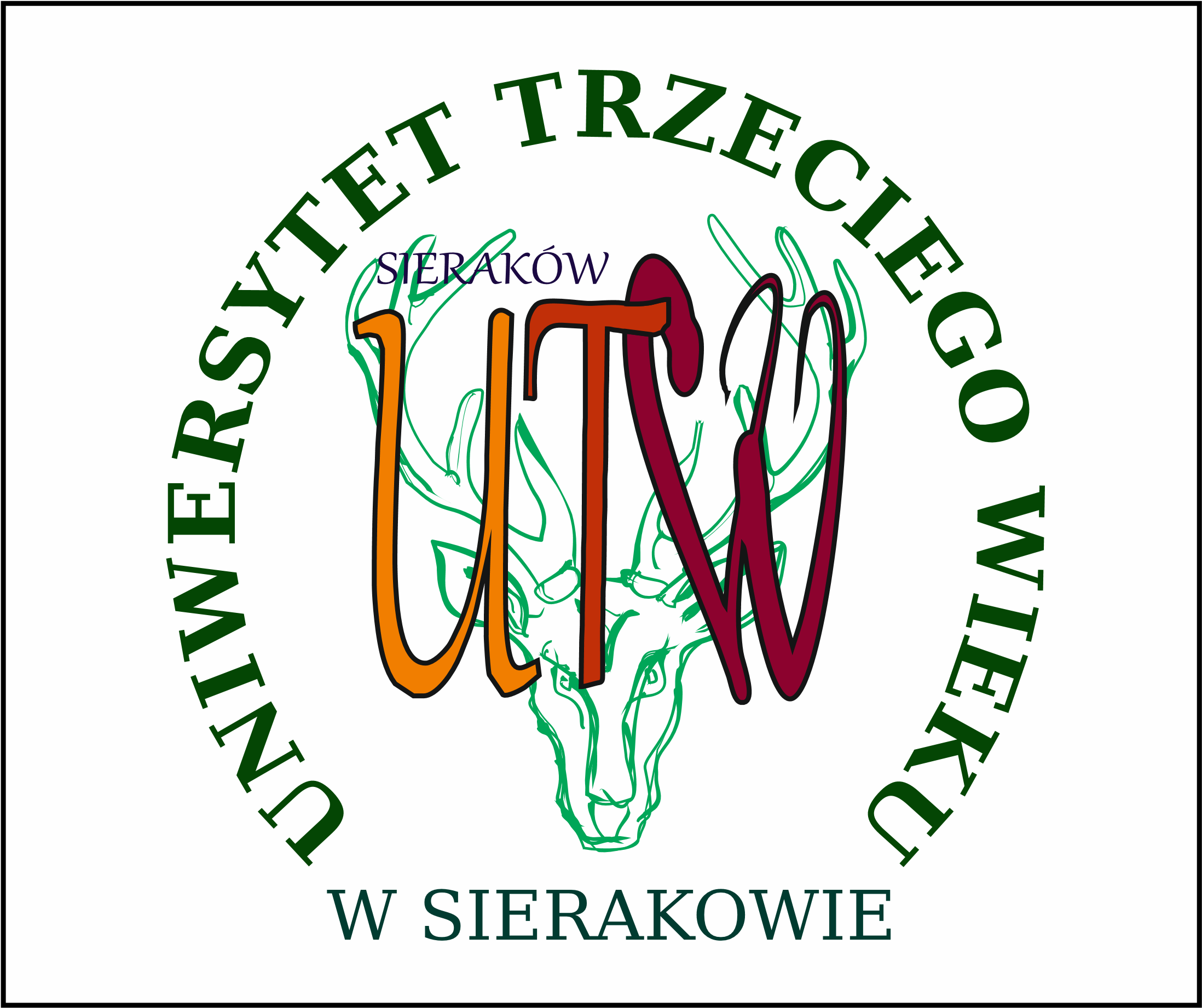 I X WIELKOPOLSKIE SPOTKANIA SPORTOWO INTEGRACYJNE UNIWERSYTETÓW TRZECIEGO
I X WIELKOPOLSKIE SPOTKANIA SPORTOWO INTEGRACYJNE UNIWERSYTETÓW TRZECIEGO FILTRO DE TEXTO ESTE FILTRO PERMITE FILTRAR INFORMACIÓN
FILTRO DE TEXTO ESTE FILTRO PERMITE FILTRAR INFORMACIÓN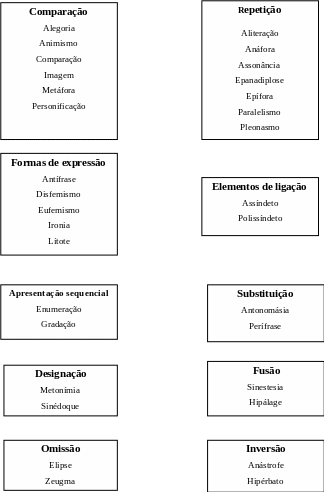 QUADRO SINÓPTICO DAS FIGURAS DE ESTILO ALEGORIA
QUADRO SINÓPTICO DAS FIGURAS DE ESTILO ALEGORIA  TASMANIA FIRE SERVICE BEING A FIREFIGHTER IN THE TASMANIA
TASMANIA FIRE SERVICE BEING A FIREFIGHTER IN THE TASMANIANORSK FORENING FOR MEDISINSK GENETIKK – NFMG V KETIL
 DOĞU AMERİKA NEW YORK (2) ORLANDO (3)
DOĞU AMERİKA NEW YORK (2) ORLANDO (3) THE RNAS AND PROTEINS OF DSRNA VIRUSES EDITED BY
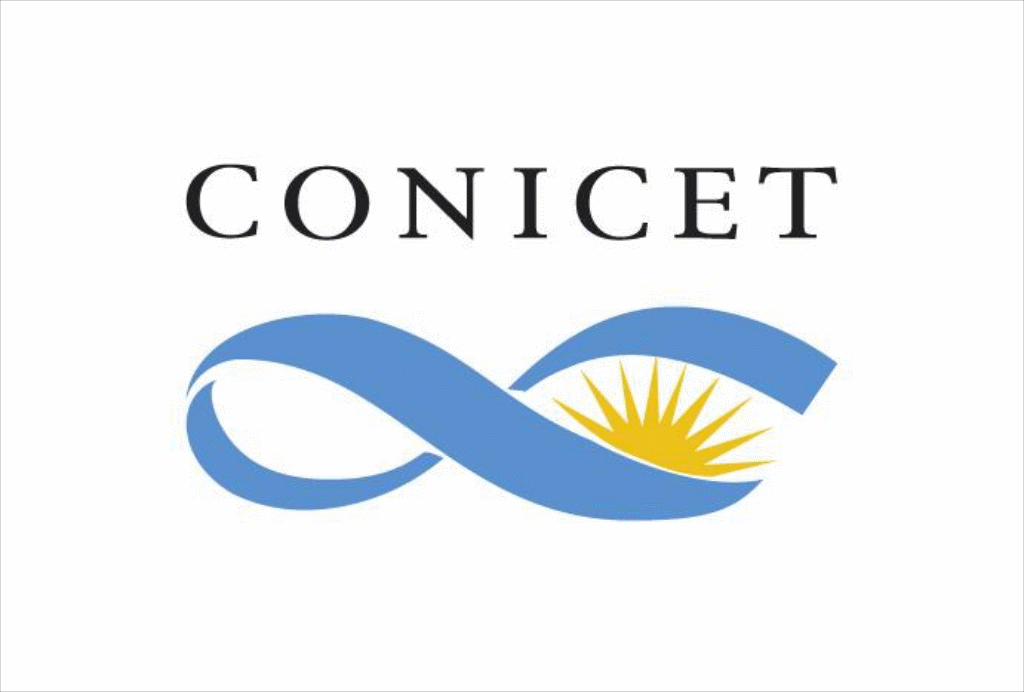 FORMULARIO DE DIVULGACION DE INVENCION – FDI
FORMULARIO DE DIVULGACION DE INVENCION – FDI CAPITALIST MODELS AND SOCIAL DEMOCRACY CAPITALIST MODELS AND SOCIAL
BIBLIOGRAFÍA RECOMENDADA CASE STUDIES IN OCEANOGRAPHY AND MARINE AFFAIRS
SMALL COUNTY COALITION LEGISLATIVE PRIORITIES RELATING TO ECONOMIC DEVELOPMENT
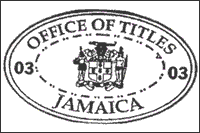 NLA NM1 APPLICATION TO NOTE THE MARRIAGE RTA
NLA NM1 APPLICATION TO NOTE THE MARRIAGE RTAACTUAL WAGE MEMORANDUM (REQUIRED COMPLETE AND SUBMIT TO HUMAN
 PARTE PRIMA NOZIONI INTRODUTTIVE E PRINCIPI FONDAMENTALI A REALTA’
PARTE PRIMA NOZIONI INTRODUTTIVE E PRINCIPI FONDAMENTALI A REALTA’ EGG IDIOMS IDIOMY Z JAJEM ) PONIEWAŻ JEST WIELKANOC
EGG IDIOMS IDIOMY Z JAJEM ) PONIEWAŻ JEST WIELKANOCOBRAZAC BROJ 1 (NAZIV I SJEDIŠTE POSLODAVCA)
MARKING FOR CONFIDENCE KATE NONESUCH AS TEACHERS WE
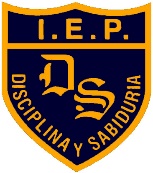 IEP DOMINGO SAVIO 2º DE SECUNDARIA – EVIDENCIA SEMANA
IEP DOMINGO SAVIO 2º DE SECUNDARIA – EVIDENCIA SEMANAVALENCIA TAMPOCO TIENE SEDES HACE YA VARIOS MESES EL